An Iranian official has denied that the country’s universities discriminate against Afghan students, despite the fact that they are barred from studying particular subjects, cannot join student unions and face severe restrictions on where they are allowed to live in the Islamic Republic.
"Discrimination between Iranian students and Afghan citizens is counter to the dignity and status of the university. There is no such thing in our universities,” Abdol Hamid Alizadeh, who handles the affairs of non-Iranian students at the Student Affairs Organization, claimed in an interview with the Iranian Labor News Agency on June 17, 2020. "The highest number of foreign students in our universities are Afghan citizens," he said. "Previously, it was not possible for Afghan students to study in Iran, but now they are. There is no ban on Afghan citizens studying at the main universities and their passports are issued free of charge."
Alizadeh said the country had also extended scholarships to outstanding Afghan students.
"Since 2018, we have issued instructions that if Afghan citizens achieve one of the top 100 scores in the national entrance exam to study for a Bachelor's degree, and achieve one of the top three scores in the exam to study for a Master's, they can receive scholarships. A hundred students from this nationality have already graduated from Iran’s best universities.”
So is it true that Afghan students face no discrimination in Iranian universities? IranWire looks at the evidence.
Admission of Foreign Students at Iranian Universities
Discussion about foreign students in Iranian universities has been going on for decades. From the time of the Islamic revolution, the parliament and the government have enacted laws, regulations, and directives regarding foreign students’ presence at universities. In 1979, Mehdi Bazargan's government agreed to allocate 50 million rials toward scholarships for foreign students in Iran, and put the matter of new scholarship student admissions up for approval by the cabinet.
In 1983, parliament approved the law, establishing the Islamic International University (which was renamed Imam Khomeini International University in 1991 after it merged with the Dehkhoda Institute of Higher Education) to attract foreign students. According to Article 21 of the law, "students of this university are selected from among domestic and foreign Muslim candidates who are committed to Islam and are bound by its instructions." On January 9, 1983, the Supreme Council of the Cultural Revolution approved the executive regulations of the law. Admission was conditional on a minimum grade point average (GPA), but the regulations also said if the applicant had a lower GPA than required, the student could still attend university as long as he or she was approved by the country’s embassy in Iran, had a referral from two professors, and had the financial means (financial resources was not a condition for students eligible for scholarships).
On March 10, 1992, the Supreme Council of the Cultural Revolution decided that places should be allocated to foreign students in both state universities and educational institutions that were partly run by the state. According to the decree, all universities were allowed to accept foreign students, and the admission of foreign students was no longer limited to Imam Khomeini International University.
Afghan Students in Iranian Universities
The exact number of Afghan students in Iranian universities is unclear, and statistics produced by various government departments differ. In September 2019, on the eve of the 2019-2020 academic year, the Afghan Ambassador to Iran announced that there were more than 40,000 Afghan students at Iranian universities. Prior to this, Abbas Araghchi, Iran's deputy foreign minister, put the number of Afghan students at Iranian universities at 23,000. Factnameh, a website analyzing government information, has examined this claim. Based on the statistical report of the Higher Education Research and Planning Institute, it found that the number of Afghan students was 13,851 in the 2016-2017 academic year.
The figures might not be consistent, but are the students consistently treated well? Do they face discrimination? Or are they, as student affairs official Abdol Hamid Alizadeh has claimed, treated the same as their Iranian counterparts?
1- Tuition
Iranian students at state universities who enter via the national entrance exam are exempt from paying tuition fees, but Afghan students will only receive scholarships if they are among the top 100 students. Pursuant to paragraph and note 7 of Article 1 of the Regulations on Admission of Foreign Students in Universities and Higher Education Institutions of the Islamic Republic, financial resources are a condition for admission. Note 8 of Article 1 of the same regulations exempts students who receive scholarships from having to meet the financial resources criteria. A report by a group of Afghan students at Iranian universities indicates that no scholarships were awarded to eligible students in the 2019-2020 academic year, and some were even forced to drop out because of this, a situation that has not been denied by Iran’s Ministry of Science.
It has become normal practice to request tuition fees from Afghan students with a diploma from Iranian schools. But according to Note 3 of Article 1 of the Regulations for Admission of Foreign Students in Universities and Higher Education Institutions of the Islamic Republic, these students are excluded from this regulation and are subject to the same admission regulations as Iranian students.
2- Extra-curricular activities
The extra-curricular activities of students in Iranian universities are not the same for Iranian and non-Iranian students. Membership to a university students’ union is dependant on an important condition: "Belief in the sacred system of the Islamic Republic of Iran and practical commitment to its jurisprudence and the Constitution,” paragraph 1 of Article 9 of the regulations state. Although rules for university students’ unions set out that Iranians and non-Iranian students are not treated differently, since membership to the union is conditional on having faith in the Islamic Republic and practical commitment to the Supreme Leader and the Iranian Constitution, non-Iranian students are automatically barred from joining the union. This article essentially divides even Iranian students into insiders and outsiders, and systematically establishes discrimination between them.
The same rule applies to the regulations for Islamic students’ organizations. Pursuant to paragraph A of Article 3 of this by-law, students can establish an Islamic organization that asserts its belief in the sacred system of the Islamic Republic of Iran and has a practical commitment to the jurisprudence and the Constitution. So again, the law deprives non-Iranian students from establishing or joining a students’ organization.
However, the most important discrimination is one that was approved by the Supreme Council of the Cultural Revolution in 2005. According to the Organizing Socio-Cultural Activities and Supervision of Foreign Students' Extra-curricular Activities by-law, the extra-curricular activities of foreign students in Iranian universities are not designed and produced to meet the needs and desires of foreign students, but with the aim of brainwashing and creating propagandists for the Islamic Republic. The regulation outlines the objectives of the extra-curricular activities of foreign students as follows:
1- Strengthening the positive attitude of foreign students toward the Islamic Republic and traditional Iranian culture;
2- Training efficient and committed forces familiar with the logic of the Islamic revolution;
3- Deepening the awareness of foreign students about Islam and the values of the Islamic revolution;
4- Familiarizing foreign students with the challenges and needs of the Islamic world;
5- Training committed specialists to help the scientific development of Islamic countries.
Therefore, unlike Iranian students, who are involved in the design and implementation of the above programs, foreign students are merely the consumers of the cultural and social programs of the Islamic Republic.
In 2009, the Supreme Council of the Cultural Revolution, headed by then-president Mahmoud Ahmadinejad, made this a political issue, and established an official resolution about it stipulating that the "representative of the Quds Force of the Islamic Revolutionary Guard Corps" become a member of the Strategic Policymaking Council for Organizing Socio-Cultural Activities and Supervision of Foreign Students' Extra-curricular Activities.
3- The right to choose a field of study
Afghan students do not have the right to study in all academic disciplines. The National Organization of Educational Testing set out its latest directive on foreign students’ selection of a field of study for the academic year 2020. Paragraph 9 of an official announcement about the matter reads: “Students are not entitled to apply to study subjects that lead to obligations for the Islamic Republic of Iran (including employment obligations) and taking special and unauthorized courses, listed on the website of the National Organization of Educational Testing, is prohibited."
On January 29, 2020, the National Organization of Educational Testing listed the prohibited fields of study for foreign nationals as follows:
Atomic physics, nuclear physics, molecular physics (plasma), fundamental particle physics, plasma engineering, safety engineering (technical inspection and aircraft protection orientation), maintenance engineering (helicopter and aircraft), aerospace engineering, aviation engineering (pilot, aircraft navigation), aircraft maintenance, helicopter piloting and flight care, military science, aviation electronics, aircraft maintenance, aircraft telecommunications, flight attendance, information technology (including secure telecommunications), satellite technology, engineering and computer engineering (secure computer orientation).
4- Selecting a place of study
Afghan students do not have the freedom to choose their place of study as Iranian students do. A communique issued in 2019 by the National Organization of Educational Testing states, "Non-Iranian applicants are not allowed to choose a field of study in areas of the country that have not been authorized for their residency.” Afghan nationals applying to study at Iranian universities are prohibited from the following areas of the country:
East Azerbaijan
Afghan nationals are prohibited from residing in all parts of the province, except the city of Tabriz
West Azerbaijan
Afghan nationals are prohibited from residing in all parts of the province, except the city of Urmia; other foreign nationals are prohibited to live in border areas
Ardabil
Afghan nationals are prohibited from residing in all parts of the province except the city of Ardabil; Iraqi nationals are prohibited from living in Pars-abad, Pileh-savar, Garami, Meshkin Shahr, and Namin
Isfahan
Afghan nationals are prohibited from residing in Natanz, Faridan, Fereydun Shahr, Semirom, Chadegan, Khansar, Dahagihan, Naein, Golpaygan, Khurbiabanak, Ardestan, and Abuseid in Aran and Bidgol district
Alborz
Non-Iranian nationals are allowed to live in all parts of the province
Ilam
Afghan nationals are prohibited from residing in all parts of the province, except in Ilam city
Bushehr
Afghan nationals are prohibited from residing in Deilam and Gonaveh districts
Tehran
Afghan nationals are allowed in all parts of the province, except the region of Khajir in District 13 of Tehran
Chahar Mahal and Bakhtiari
Afghan nationals are prohibited from residing in all parts of the province, except the city of Shahr-e Kord
South Khorasan
All non-Iranian nationals are prohibited from residing in the border areas of Nehbandan, Sarpisheh,Darmian, Ghaen, Zirkuh, Ferdows, Sarayan and Tabas. Afghan nationals are prohibited from residing in the districts of Khusf and Birjand. Iraqi nationals are prohibited from residing in all parts of the province, except the city of Birjand
Khorasan-e Razavi
Afghan nationals are prohibited from residing in the border districts of Torbat-e Jam, Quchan, Taybad, Khaf, Sarakhs, Kalat-e Naderi and Daregaz
North Khorasan
Afghan nationals are prohibited from residing in all parts of the province, except the city of Bojnurd
Khuzestan
Afghan nationals are prohibited from residing in all parts of the province except the cities of Ahvaz and Gotvand
Zanjan
Afghan nationals are prohibited from residing in all parts of the province except city of Zanjan
Sistan and Baluchistan
Afghan nationals are prohibited from residing in all parts of the province except the city of Zahedan
Fars
Afghan nationals are prohibited from living in Firuzabad, Farashind, Darab, Arsanjan, Fasa, Mehr, Rostam, Khonj, and Neyriz
Qazvin
Afghan nationals are prohibited from living in all parts of the province except the city of Qazvin
Qom
All non-Iranian nationals are allowed to live all parts of the province
Kurdistan
Afghan nationals are prohibited from living in all parts of the province except the city of Sanandaj
Kerman
Afghan nationals are prohibited from living in Anbar-abad, Baft, Manujan, Ghaleh-Ganj, Bam, Fahroj, Rudbar, Faryab, Narmashir, Kahnuj, Jiroft, Anar, and Reygan
Kermanshah
Afghan nationals are prohibited from living in all parts of the province except the city of Kermanshah
Kohkiluyeh and Boyer Ahmad
Afghan nationals are prohibited from living in all parts of the province except the city of Yasuj
Golestan
Afghan nationals are prohibited from living in all parts of the province except the cities of Gorgan and Gonbad
Gilan
Afghan nationals are prohibited from living in all parts of the province except the city of Rasht
Lorestan
Afghan nationals are prohibited from living in all parts of the province except the city of Khoram-abad
Mazandaran
Afghan nationals are prohibited from living in all parts of the province except the city of Sari
Markazi
Afghan nationals are prohibited from living in the districts of Ashtian, Tafresh, Farahan, Farmihan, Khomein, Shazand, Mahalat, Zarandieh, Komijan, and Khandab
Hormozgan
Afghan nationals are prohibited from living in Abumusa and Jask
Hamedan
Afghan nationals are prohibited from living in all parts of the province except the city of Hamedan
Yazd
Afghan nationals are prohibited from living in Khatam and Bafgh districts
Conclusion
"Discrimination between Iranian students and Afghan citizens is counter to the dignity and status of the university. There is no such thing in our universities,” claims Abdol Hamid Alizadeh, the director general of non-Iranian students’ affairs at the Student Affairs Organization. But do Iranian universities discriminate between Iranian and Afghan students? IranWire looked at the evidence and revealed:
1- Unlike Iranian students, Afghan students attending state universities must pay tuition fees.
2. Afghan students are barred from joining students’ unions and student organizations and cannot play any role in establishing student organizations.
3. Afghan students are barred from studying some academic disciplines.
4- It is forbidden for Afghan students to travel to or live in various areas of the country; they cannot choose to study at universities in these parts of the country.
Therefore, IranWire awards Abdol Hamid Alizadeh, the director general of non-Iranian students’ affairs at the Student Affairs Organization, the “Pinocchio’s badge” for his claim that "there is no discrimination between Iranian students and Afghan citizens in our universities.”
A Pinocchio's lie is a statement that has been proven to be untrue or based on existing research and evidence that has been determined to be false.
You can find out more about our fact-checking methodology here.
Read other articles in the series:
Fact Check: Army Commander Lies About Iran's Speed Boats
Fact Check: Can Iran Make Airplanes from Scratch?
Fact Check: How Big of a Lie is the Guards' Coronavirus Detector?
Fact Check: Does Fasting Boost Your Immune System?
visit the accountability section
In this section of Iran Wire, you can contact the officials and launch your campaign for various problems




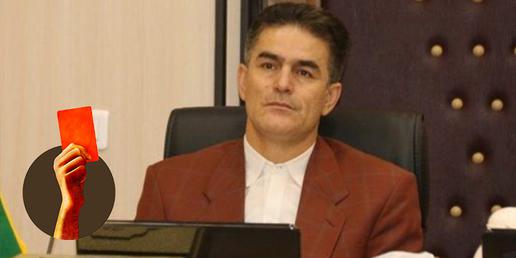
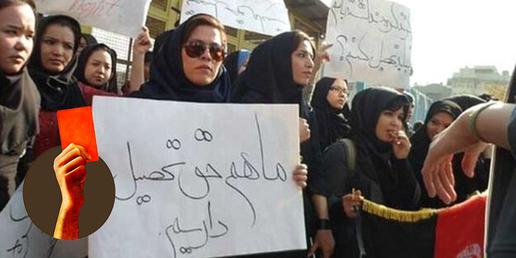




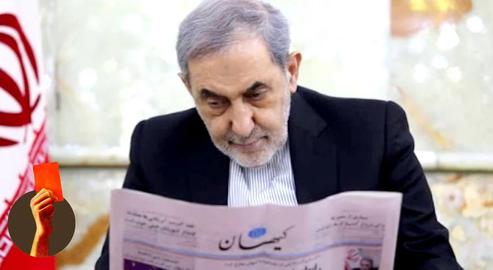

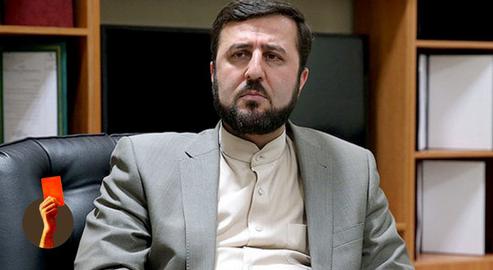
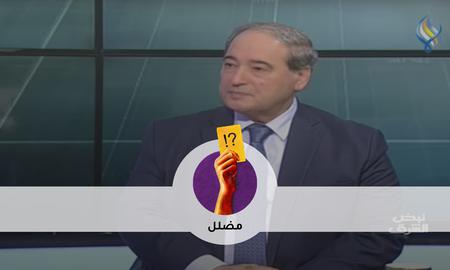
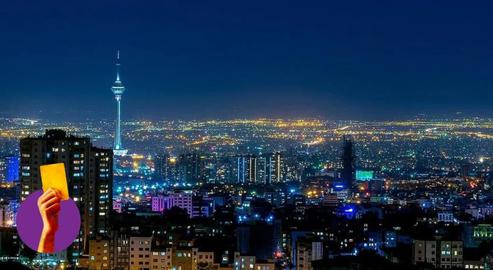
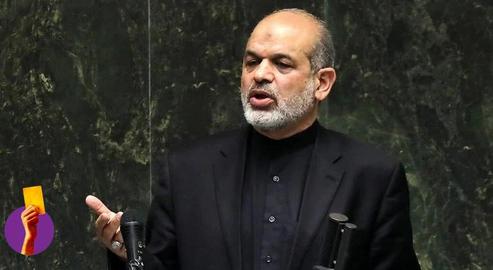


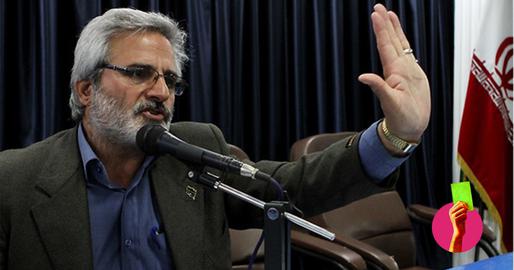
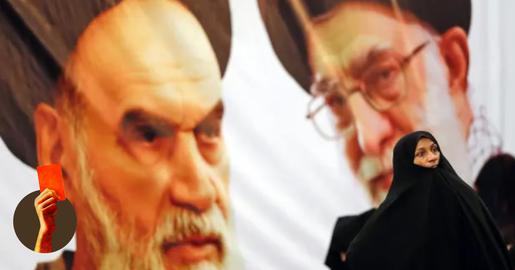
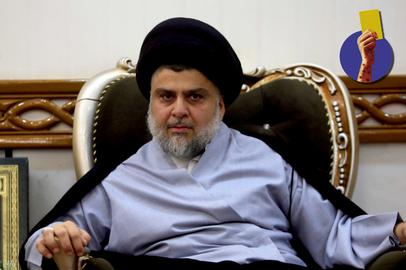


comments